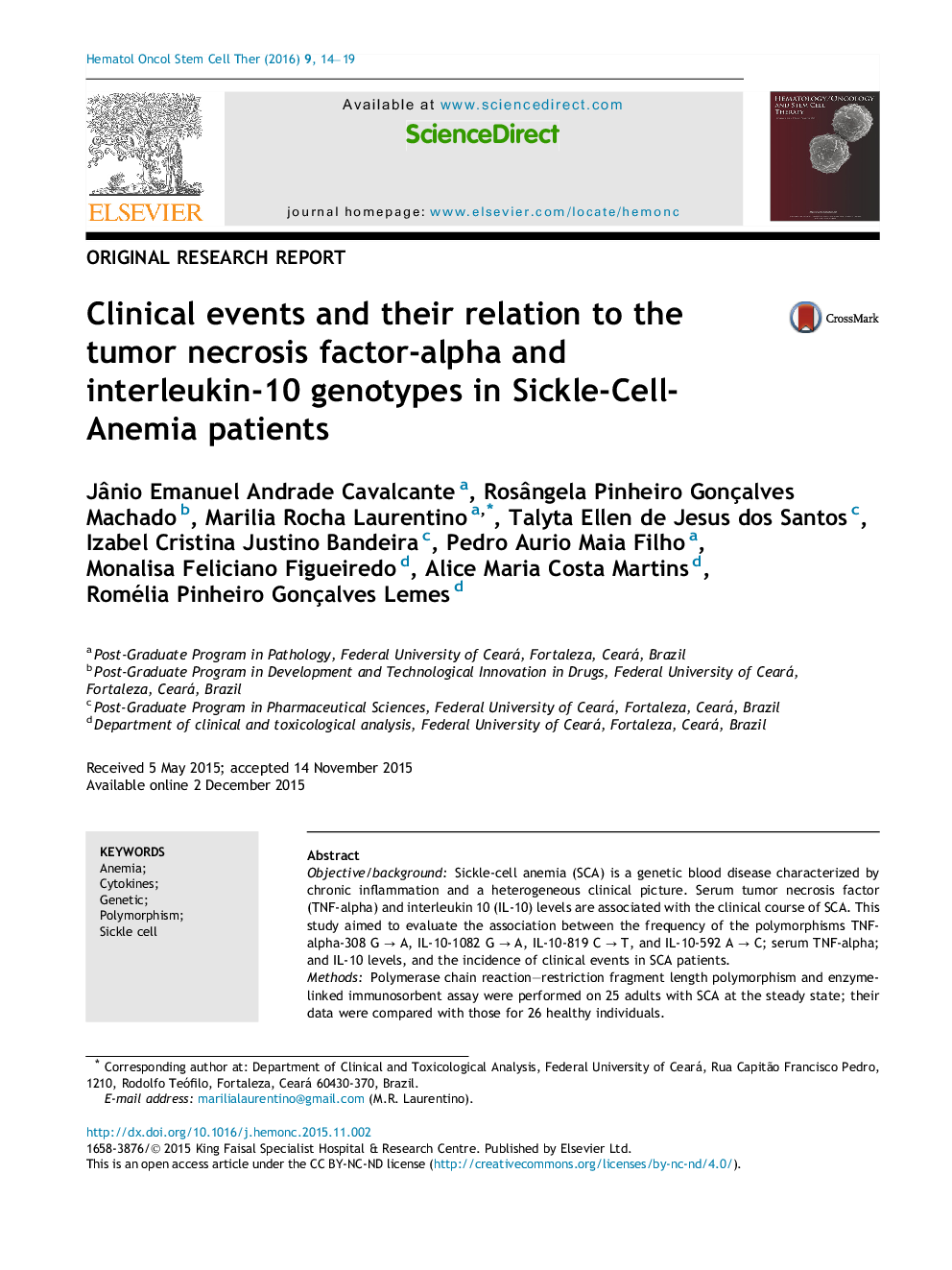| Article ID | Journal | Published Year | Pages | File Type |
|---|---|---|---|---|
| 2135639 | Hematology/Oncology and Stem Cell Therapy | 2016 | 6 Pages |
Objective/backgroundSickle-cell anemia (SCA) is a genetic blood disease characterized by chronic inflammation and a heterogeneous clinical picture. Serum tumor necrosis factor (TNF-alpha) and interleukin 10 (IL-10) levels are associated with the clinical course of SCA. This study aimed to evaluate the association between the frequency of the polymorphisms TNF-alpha-308 G → A, IL-10-1082 G → A, IL-10-819 C → T, and IL-10-592 A → C; serum TNF-alpha; and IL-10 levels, and the incidence of clinical events in SCA patients.MethodsPolymerase chain reaction–restriction fragment length polymorphism and enzyme-linked immunosorbent assay were performed on 25 adults with SCA at the steady state; their data were compared with those for 26 healthy individuals.ResultsThe most frequent genotype of the TNF-alpha polymorphism was GG (low producer), and the most frequent genotype of the IL-10 polymorphisms was “low producer” (ACC ACC, ACC ATA, ATA ATA). The TNF-alpha levels were significantly higher in SCA in patients with acute chest syndrome (ACS). The IL-10 levels were reduced in polytransfusion and in patients with ACS.ConclusionThe patients presented prevalence of TNF-alpha and IL-10 low-profile producer. The cytokine serum levels presented an association with the presence of polytransfusion and ACS in SCA patients.
